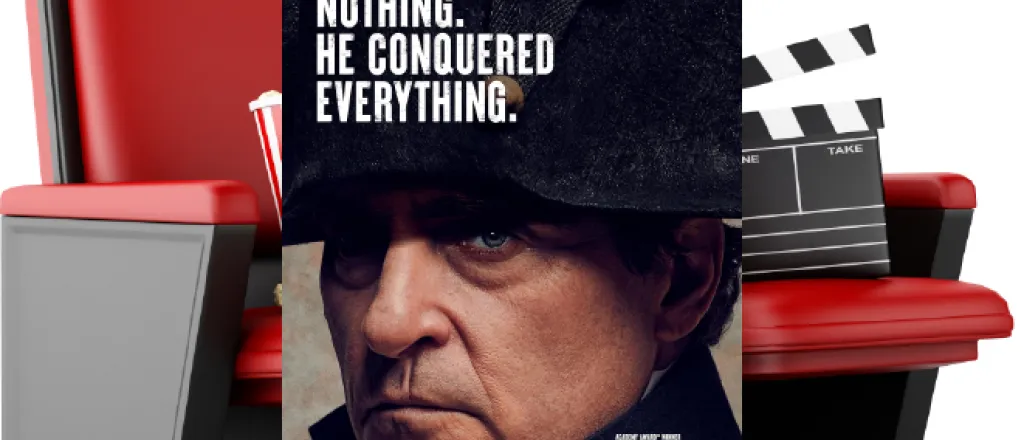
Movie Review - Napoleon
©
Ridley Scott’s “Napoleon” did rather well for itself over Thanksgiving weekend, opening in the #2 position at the domestic box office behind the second weekend of the new “Hunger Games.” A debut at #2 behind a not-particularly-beloved returning champion may not sound impressive, but my prediction was that it wouldn’t even finish in the top three. The film is a three-hour, R-rated historical epic that isn’t getting great reviews or generating much Oscars buzz outside of the technical categories. I thought for sure its performance would pale in comparison to family-friendly fare like “Wish” or “Trolls Band Together.” Yet the film pulled what I would consider a major upset over those seemingly surefire hits. Something tells me that Napoleon himself would have a hard time hiding a smirk over how badly I underestimated his biopic.
The movie follows Napoleon Bonaparte (Joaquin Phoenix) from his days as a gunnery officer watching the execution of Marie Antoinette to his rise in the military to General to his participation in a coup that sees him become Emperor of France to his eventual downfall, exile, and worst of all, defeat. We never see him as a child or any version of him that can’t plausibly be played by Joaquin Phoenix. Again, if the real Napoleon was anything like the way Phoenix plays him, I bet he’d agree with that decision – skip the humble beginnings and start from one of the most important events in history and go from there.
As with most biopics, half the movie is a love story. He woos a widow named Josephine (Vanessa Kirby), who does not initially believe he is who he says he is. I suppose he’s attracted to the challenge. The two have a rocky relationship fraught with obstacles, such as long stretches apart, infertility, affairs on both their parts, and his megalomaniacal nutjob personality. The real Napoleon might begrudgingly concede some wrongdoing in the relationship, though I’m sure he would vehemently object to his portrayal in the couple’s intimacy scenes. Right or wrong, it’s the sort of thing one invariably denies.
Director Scott wants the audience to care about the relationship, and especially Josephine as a character. As with “The Last Duel,” the film chides history buffs that ignore the female perspective. But people aren’t coming to this movie for the relationship, they’re coming for the battle scenes, and there are plenty of them. There’s no shortage of shootings and skewerings, but it’s the cannons that do the most damage, especially when the venue is a frozen lake and the cannons can shatter the entire battlefield. And the less said about what a cannonball does to a horse in one scene, the better. The real Napoleon would probably nitpick some details, but overall approve of the grand scale of these scenes.
There are so many battle scenes in “Napoleon” that I was actually tired of them by the movie’s end. I found myself nodding off during the Battle of Waterloo, and then I had no problem making it through a scene of Napoleon eating breakfast the next morning. The relationship stuff drags too, and the film keeps introducing new characters and can’t make any of them interesting or memorable to save its life. It can’t even make Napoleon himself that interesting, though Phoenix plays the character with some endearingly insecure touches. Basically, there’s too much of too much here. The real Napoleon would probably approve of all the excess, though even he might think the movie wastes an excessive amount of time.
Grade: C-
“Napoleon” is rated R for strong violence, some grisly images, sexual content and brief language. Its running time is 158 minutes.
Contact Bob Garver at rrg251@nyu.edu.













